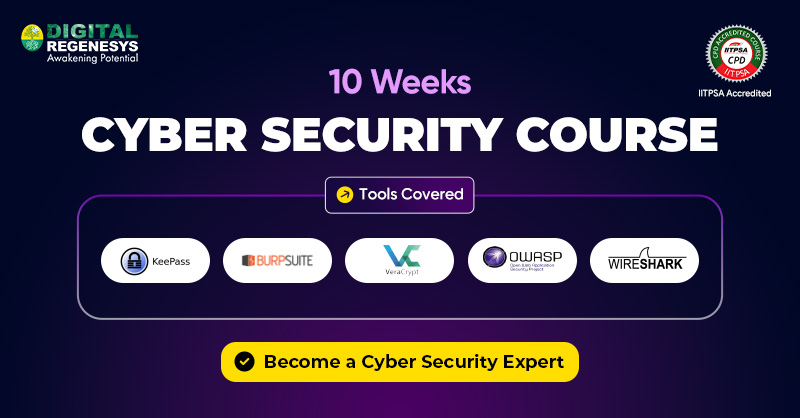How to become a Cybersecurity Analyst in Zimbabwe: Key Skills and Step-by-step Guidance.

As Zimbabwe’s digital economy expands, the need to protect sensitive data, systems, and networks is greater than ever. This guide on how to become a cybersecurity analyst in Zimbabwe outlines the role’s responsibilities, the driving factors behind the surging demand, and the essential skills and steps required for success. With more businesses, government bodies, and financial institutions moving their operations online, the risk of cyber threats, data breaches, and digital fraud is rising sharply.
Cybersecurity analysts play a vital role in defending organisations against these challenges, ensuring trust, stability, and continuity in an increasingly connected world. Whether starting your tech career or shifting from a related field, you will learn how to position yourself for long-term success in safeguarding the nation’s digital infrastructure.
In this article, you will get to know about this career path and why one should become a Cybersecurity Analyst in Zimbabwe.
Who is a Cybersecurity Analyst?
A Cybersecurity Analyst is a professional who protects an organisation’s digital systems, networks, and data from cyber threats. They monitor for suspicious activity, investigate breaches, and implement measures to prevent future attacks. In simple terms, they are the digital guardians ensuring information stays safe.
If you are exploring how to become a cybersecurity analyst in Zimbabwe, understanding this role is the first step. It requires technical knowledge, problem-solving skills, and a commitment to staying ahead of evolving threats. With cybercrime on the rise, their work is critical in keeping businesses, governments, and individuals secure in today’s connected world.
Know more about: What is a Cyber Attack? Understanding Threats and Defence Strategies

Why Cybersecurity is in High Demand in Zimbabwe
Cybersecurity is in high demand in Zimbabwe as organisations face rising threats to their data and systems. This trend also creates exciting opportunities for those pursuing how to become a cybersecurity analyst in Zimbabwe and build a secure future career.
Several emerging trends are increasing the demand for cybersecurity professionals in Zimbabwe.
1. Increase in Cyber Threats
As more organisations go digital, they face greater risks from cybercriminals targeting sensitive systems and data.
2. Growth of E-Government and E-Commerce
Public and private services are moving online, creating a strong need for robust security frameworks.
3. Data Protection Requirements
The increasing use of personal and financial data necessitates the employment of skilled professionals to prevent breaches and ensure compliance.
4. Career Opportunities
This growing demand presents strong prospects for those exploring how to become a cybersecurity analyst in Zimbabwe.
5. Mobile Money and Fintech Expansion
Securing digital financial services is needed to protect consumer trust and economic stability.
6. Cloud and Remote Work Adoption
Increased reliance on cloud platforms and hybrid work models exposes organisations to new vulnerabilities.
Key Responsibilities: Cybersecurity analyst duties in Zimbabwe include System monitoring, detecting threats, preventing attacks, and responding to incidents to keep the digital economy safe.
Read More: Understanding Security Policy in Cyber Security
What is the Job of a Cybersecurity Analyst in Zimbabwe?
A Cybersecurity Analyst in Zimbabwe plays both a strategic and technical role, safeguarding digital systems from threats like hacking, malware, and phishing. They act as the first line of defence, ensuring data integrity and trust. If one wants to start their career path in an evergreen career like Cybersecurity, then earning a Certification Course in Cybersecurity will be a smart choice. Before knowing about how to become a cybersecurity analyst in Zimbabwe, it’s necessary to know what job roles this career path offers to protect and strengthen the nation’s digital future.
These are the most critical cybersecurity analyst duties in Zimbabwe:
- Monitor systems: Continuously watch networks and systems to detect suspicious or harmful activity early.
- Find vulnerabilities: Identify security weaknesses and apply fixes to prevent attacks.
- Audit security: Conduct regular reviews and assessments to ensure that protections are effective.
- Handle incidents: Respond quickly to breaches, investigate causes, and prevent repeats.
- Set policies: Develop and update clear rules to guide security practices.
- Train staff: Educate employees on safe digital habits and awareness of potential threats.
- Stay updated: Keep informed on the latest cyber threats and defence technologies.
Whether they work in a bank, telecom company, hospital, or government office, a Cybersecurity Analyst’s ultimate mission remains the same, which is to protect critical digital resources.
Career Outlook for Cybersecurity Analysts in Zimbabwe
The demand for cybersecurity professionals in Zimbabwe is steadily increasing. It will continue to grow as more institutions digitise, making now an ideal time to pursue how to become a cybersecurity analyst in Zimbabwe.
To understand the demand better, consider the following points for becoming a Cybersecurity Analyst in Zimbabwe:
1. Entry-Level Roles
After learning how to become a cybersecurity analyst in Zimbabwe, the next important consideration is the earning opportunities and job stability in this field before launching your career.
For newcomers, the following roles provide a strong foundation for aspiring cybersecurity analysts in Zimbabwe:
- Security Analyst: Helps protect organisations from cyber threats by monitoring systems, detecting risks, and responding to incidents, with salaries in Zimbabwe offering stable, competitive earnings that grow steadily as skills, experience, and professional value develop over time.
- SOC Analyst: Keeps a constant watch over an organisation’s digital environment, swiftly spotting and addressing security issues, with salaries in Zimbabwe providing a dependable starting point that increases as expertise, responsibility, and career progression naturally advance.
2. Mid-Level Roles
These are some of the roles that hiring managers demand for professionals with 3-7+ years of experience as a cybersecurity Analyst.
After gaining entry-level experience, professionals can advance into mid-level roles that demand greater expertise and responsibility:
- Cybersecurity Specialist: Tackles complex security risks, designs and improves defence measures, and supports wider business goals, with salaries in Zimbabwe recognising their proven experience and offering consistent progression as they enhance strength and protect critical operations.
- Cybersecurity Consultant: Advises organisations on strengthening their security posture, implements tailored protection strategies, and ensures compliance with best practices, with salaries in Zimbabwe rewarding their specialist insight and offering steady advancement as they deliver measurable value and trusted guidance.
3. Senior-Level Roles
Most preferred roles in the job market for professionals who have 7-10+ Years of experience as highly experienced cybersecurity analysts are as follows.
Senior-level roles offer leadership opportunities and strategic influence in cybersecurity in Zimbabwe, which are as follows:
- Cybersecurity Manager: Directs overall security operations, oversees critical risk management, and guides expert teams, with salaries in Zimbabwe reflecting their high responsibility and offering substantial long-term rewards as they shape resilient systems and safeguard organisational trust.
- Chief Information Security Officer (CISO): Shapes an organisation’s overall approach to digital safety, makes key decisions on how to protect valuable data, and ensures every department follows secure practices, with salaries in Zimbabwe recognising their essential role and offering significant rewards for keeping operations safe and dependable.
If one is planning how to become a cybersecurity analyst in Zimbabwe, then they must know that roles in international companies or remote contracts may offer even higher compensation depending on complexity and responsibility.
Industries Hiring Cybersecurity Analysts in Zimbabwe
How to become a cybersecurity analyst in Zimbabwe, and in which sectors this field is mainly applied in Zimbabwe. With businesses, government institutions, and financial systems relying heavily on technology, the demand for skilled cybersecurity analysts is growing fast. This field is not only applied in sectors like banking, telecommunications, healthcare, and government, but also in education, e-commerce, and critical infrastructure.
The steps to becoming a cybersecurity analyst in Zimbabwe and the top sectors where these skills are most in demand are as follows:
1. Banking and financial institutions
safeguard sensitive customer data, protect online transactions, and ensure systems meet strict security regulations, making this a key sector for anyone researching how to become a cybersecurity analyst in Zimbabwe.
2. Telecommunications and internet service providers
secure large-scale networks, prevent service disruptions, and defend against cyberattacks targeting communication systems.
3. E-commerce and digital marketplaces
protect payment gateways, customer information, and ensure a safe shopping experience for users.
4. Government agencies and ministries
defend national data, maintain the integrity of public services, and prevent threats to critical infrastructure.
5. Health tech platforms and hospitals
secure patient records, protect medical devices, and ensure uninterrupted access to healthcare services.
6. Energy, transport, and logistics firms
shield operational systems from disruption, protect supply chains, and maintain safety in essential services.
7. Tech startups and consulting firms
design and deliver security solutions for clients, manage risk, and build strong digital protection from the ground up, offering exciting opportunities for those learning how to become a cybersecurity analyst in Zimbabwe.
Beyond traditional full-time positions, more professionals are finding opportunities in freelance work, such as security audits, penetration testing, and advisory projects, which allow them to collaborate with a diverse range of clients while expanding their skills and industry reach.
Read More: Types of Cyber Security Tools
The Future of Cybersecurity in Zimbabwe
As technology advances and online risks become more complex, anyone interested in how to become a cybersecurity analyst in Zimbabwe can expect a career path with strong demand, where staying adaptable, continuously learning, and anticipating threats will be key to protecting vital systems and data.
Zimbabwe’s digital future depends on proactive strategies to secure data and systems, such as:
1. Emergence of AI-powered defence systems
Intelligent tools are now being trained to spot unusual activity, stop threats before they spread, and help security teams work faster.
2. Tighter rules on protecting personal information
Authorities are placing clear responsibilities on organisations to handle people’s data safely and respond quickly to any breaches.
3. Greater funding for secure digital foundations
Businesses are putting more effort into strengthening the systems, networks, and processes that keep their operations safe.
4. Global teamwork against borderless cybercrime
Security professionals are joining forces across countries to track, disrupt, and prevent attacks that move between regions.
5. Demand for local experts to reduce reliance on external contractors
There is a growing need for home-grown talent to manage security needs internally and build long-term resilience.
Cybersecurity is now a key part of running any organisation, and anyone focusing on how to become a cybersecurity analyst in Zimbabwe will find that gaining the right skills, hands-on experience, and continuous learning is the best way to stay in demand for the future.
Conclusion
The journey of how to become a cybersecurity analyst in Zimbabwe is both promising and impactful. Cybersecurity Analysts play a crucial role in shaping Zimbabwe’s digital future, as every new online service or system brings fresh security challenges that demand skilled professionals. If you have an eye for detail, enjoy tackling problems, and want a career that blends technology with meaningful real-world impact, this path offers both stability and purpose. By building strong technical skills, gaining hands-on experience, and applying practical knowledge, you can create a rewarding and well-paid career in a rapidly expanding field that’s essential to safeguarding the country’s digital growth.
If you want to shape your future career by understanding the increasing demand and numerous benefits, then checking out the Digital Regenesys platform is recommended.
Last Updated: 15 September 2025
